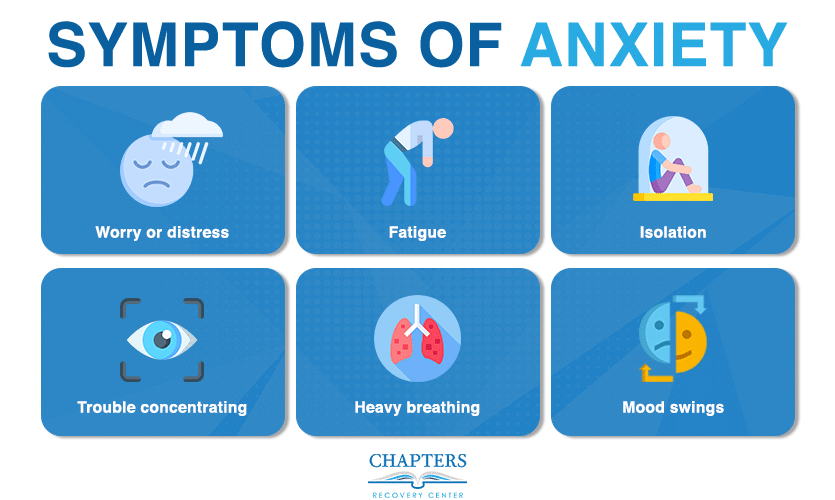After completing detox and treatment, it’s common for people with addiction to fall back into old patterns during the recovery process. The chemical imbalance produces intense withdrawal symptoms and psychological urges that begin to interfere with all aspects of life, including asking for or receiving help.
Each stage of addiction will necessitate different levels of care. The first few days and weeks of recovery will be dedicated to preparing a person for treatment. Detoxification is the first step in the process, where medical professionals safely rid the body of drugs and alcohol. people will experience mild to severe withdrawal symptoms as their bodies are adjusting to no longer having substances in their systems.
Breaking the cycle is extremely difficult without professional help. Chapters Recovery in Danvers, Maryland, provides treatment for alcoholism and other resources to help people break the cycle of addiction and recover.
What is Alcohol Detoxification?
Drug and alcohol detoxification is the initial step in the recovery journey for people struggling with alcohol addiction. It involves the process of eliminating alcohol from the body and allowing it to return to a state of equilibrium without the influence of alcohol. During detoxification, people abstain from alcohol, giving their bodies and minds the opportunity to heal and restore balance.
It is a crucial phase that marks the beginning of a healthier, alcohol-free life. Seeking professional support and guidance during detoxification can provide the necessary medical supervision and emotional support to navigate through potential withdrawal symptoms and challenges with compassion and care.
The Detoxification Process
If you’re a recovering alcoholic embarking on the path of detoxification, understanding the process can provide clarity and reassurance. This concise article aims to provide you with essential information, including lesser-known facts, to help you navigate the journey ahead. Remember, you’re not alone, and recovery is possible.
Why Detox is the First Step
Detoxification serves as the crucial initial step in alcohol recovery, playing a vital role in the journey toward a healthier and sober life. Understanding why detox is the first step can empower people seeking recovery to embark on their journey with clarity and compassion.
- Breaking the Cycle of Physical Dependence: Detoxification helps people break their dependence on alcohol by allowing their bodies to recalibrate and return to a state of equilibrium, laying the foundation for recovery.
- Addressing Underlying Psychological Factors: Detoxification provides an opportunity to assess and address the psychological factors contributing to alcohol addiction, such as stress, trauma, or mental health conditions, setting the stage for holistic recovery.
- Building Motivation and Confidence: Completing detox instills a sense of accomplishment, motivating people and building their confidence to continue their recovery journey with determination and hope.
- Preparing for Further Treatment: Detox prepares people for subsequent treatments and therapies by clearing alcohol from their bodies, allowing them to actively engage in counseling, support groups, or rehabilitation programs for more effective recovery.
- Monitoring and Managing Withdrawal Symptoms: Detoxification is crucial for monitoring and managing potential withdrawal symptoms, ensuring people receive necessary medical attention, medications, and support to alleviate discomfort and reduce complications.
- Promoting Physical Healing: Detoxification initiates the healing process by repairing damaged organs, improving liver function, boosting the immune system, and addressing any existing medical conditions exacerbated by alcohol use, helping people restore their physical well-being.
Detox vs. Rehab
When seeking addiction treatment, it’s essential to understand the differences between detoxification (detox) and rehabilitation (rehab). Exploring the facts can empower people to make informed decisions about their recovery journey.
Alcohol Withdrawal and Food Cravings
Alcohol withdrawal can bring about food cravings, particularly for sugar and carbohydrates, due to neurochemical imbalances and emotional factors. Understanding the connection between alcohol withdrawal and food cravings can help individuals approach their recovery journey with compassion and informed decision-making. Focusing on balanced nutrition and seeking professional support can contribute to overall well-being and successful recovery.
- Neurochemical Imbalance: Alcohol withdrawal can disrupt the brain’s chemistry, leading to withdrawal symptoms. This can also impact appetite and cravings during this phase.
- Sugar and Carbohydrate Cravings: Cravings for sugar and carbs are common during alcohol withdrawal as the body tries to replenish energy levels and dopamine. These foods provide temporary satisfaction and a quick energy boost.
- Emotional and Psychological Factors: Food cravings during withdrawal can be influenced by emotional triggers like anxiety or stress. Some individuals turn to food as a coping mechanism. Addressing these emotional factors is important for managing cravings effectively.
- Balanced Nutrition for Recovery: Prioritizing balanced nutrition is essential during alcohol withdrawal. Including nutrient-rich foods like fruits, vegetables, lean proteins, and whole grains supports physical healing, stabilizes mood, and promotes overall well-being.
Alcohol Withdrawal: Food to Avoid
Being mindful of the foods to limit during alcohol withdrawal can support a smoother recovery process. An alcohol detox diet should not include:
- Caffeine and Stimulants: To support withdrawal, it’s best to limit or avoid caffeine and stimulants like coffee. Caffeine can disrupt sleep, and increase anxiety and restlessness. Opt for decaffeinated beverages or herbal teas to promote better sleep and relaxation.
- Sugary and Processed Foods: Limiting sugary and processed foods is important during withdrawal. They can cause energy crashes, affect blood sugar levels, and contribute to mood swings. Choose whole foods like fruits, vegetables, lean proteins, and whole grains for sustained energy and essential nutrients.
- Spicy and Acidic Foods: During withdrawal, spicy and acidic foods may irritate the sensitive gastrointestinal system, leading to discomfort. Opt for milder and easily digestible options to alleviate symptoms like heartburn or acid reflux.
- High-Fat and Fried Foods: Limit high-fat and fried foods during withdrawal to support digestion and overall health. These foods can cause sluggishness, increase inflammation, and worsen symptoms like nausea. Choose lighter cooking methods like baking, grilling, or steaming.
Alcohol Withdrawal: Best Foods
Choosing the right foods during alcohol withdrawal can play a vital role in supporting the recovery process. Incorporating these nutrient-dense choices can contribute to a smoother and more compassionate journey toward sobriety.
- Hydrating Fruits and Vegetables: During alcohol withdrawal, prioritize hydrating fruits and vegetables like cucumbers, watermelon, strawberries, and leafy greens. They provide hydration, vitamins, minerals, and antioxidants that aid in cell recovery and healing.
- Lean Proteins: Include lean proteins such as chicken, fish, tofu, and legumes. These foods provide essential amino acids for tissue repair, physical health, satiety, stable blood sugar levels, and preventing energy crashes.
- Whole Grains: Incorporate whole grains like quinoa, brown rice, oats, and whole wheat bread. They provide sustained energy, B vitamins, fiber, magnesium, and zinc, supporting mood regulation, and cognitive function, and combating fatigue during withdrawal.
- Healthy Fats: Include sources of healthy fats like avocados, nuts, seeds, and olive oil. These fats provide omega-3 fatty acids and monounsaturated fats that support brain health, reduce inflammation, and stabilize mood, and energy levels.
- Herbal Teas: Soothe and calm withdrawal symptoms with herbal teas such as chamomile, peppermint, and ginger. They offer hydration, alleviate anxiety, restlessness, and gastrointestinal discomfort while providing a warm and comforting alternative to caffeinated drinks.
Detox Safely and Successfully at Chapters Recovery Center
Detoxification is an important step in the recovery process for individuals struggling with alcohol addiction. Seeking professional help from reputable treatment centers, such as Chapters Recovery Center, can provide a supportive and structured environment for safe detoxification. At Chapters Recovery Center, trained professionals will assess the person’s individual needs and create a personalized detox plan. The process typically involves medical supervision, monitoring vital signs, and managing any withdrawal symptoms that may arise.
Chapters Recovery Center in Danvers, MD will take a holistic approach to detoxification, considering not only the physical aspects but also the emotional, mental, and spiritual well-being of the person.
We prioritize individualized care, tailoring the detoxification process to each person’s specific needs and circumstances. This personalized approach can enhance the effectiveness and comfort of the detoxification process, leading to a safer and more successful outcome. Call us today to learn more about our detoxification program.
References







